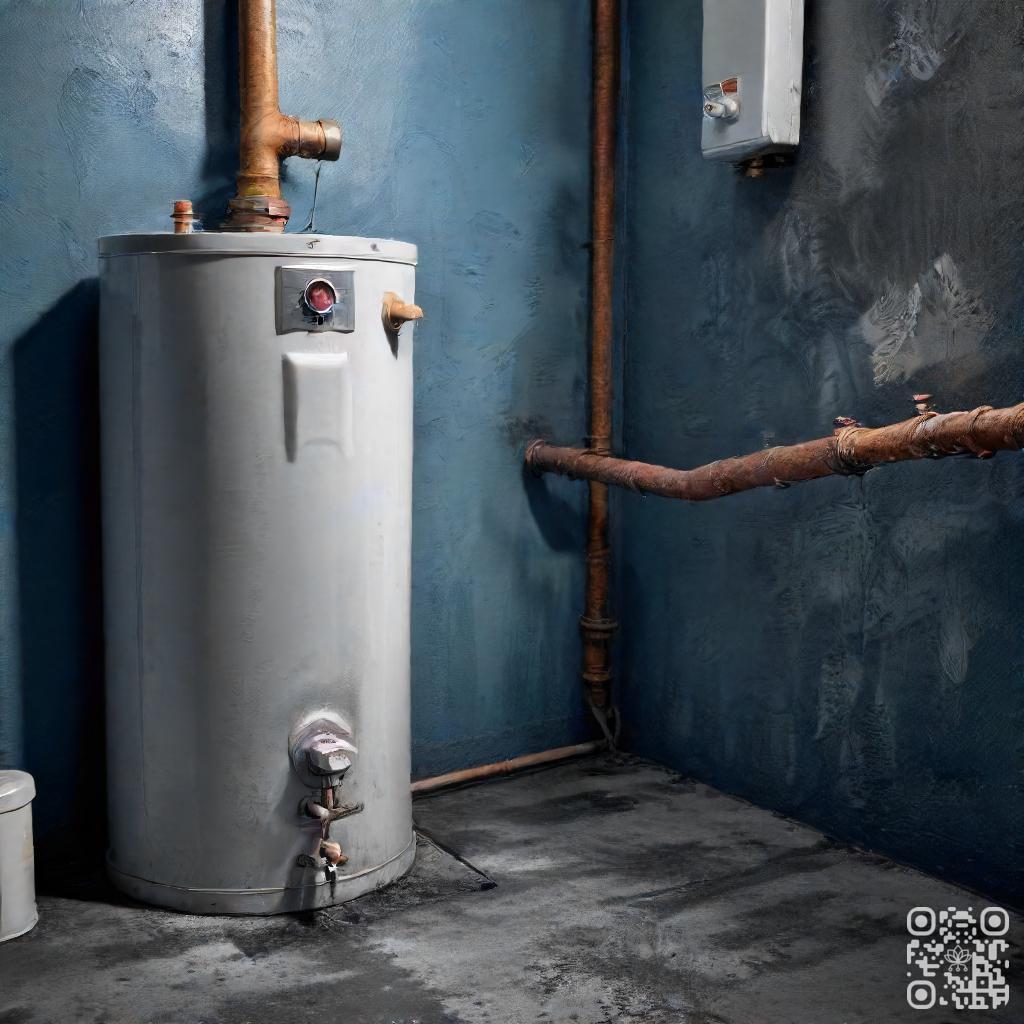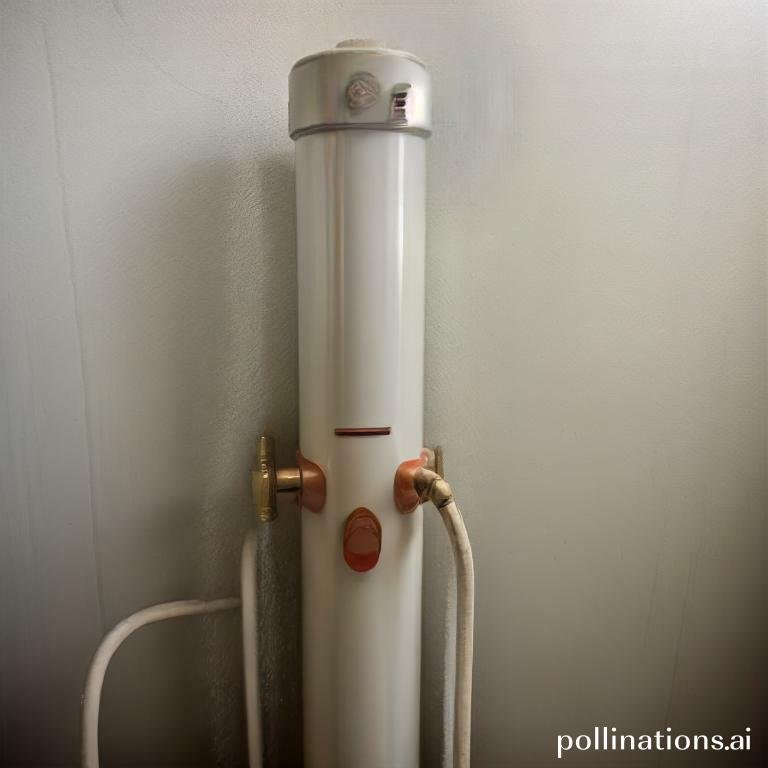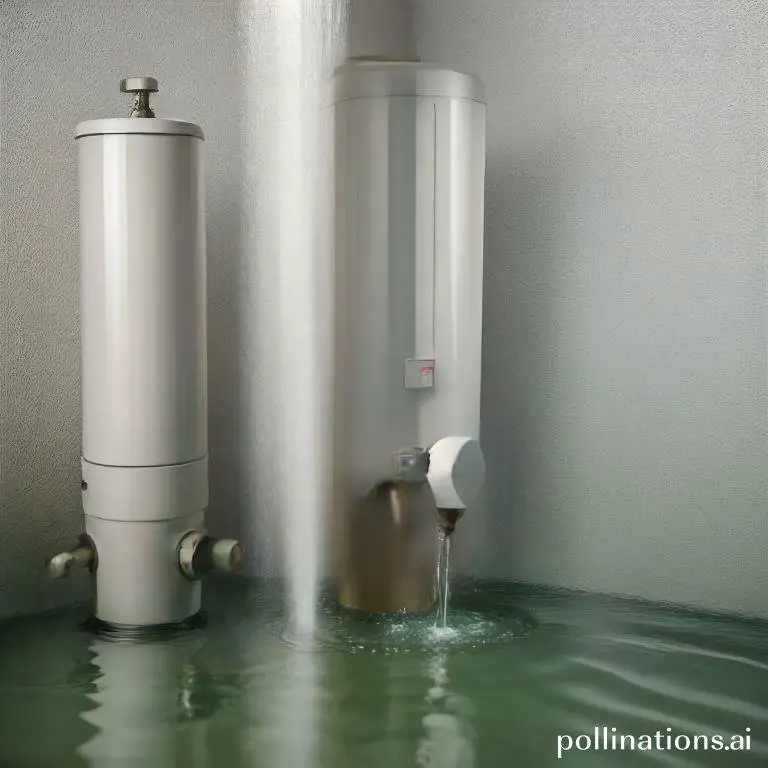
II. To check for hidden leaks, turn off the water supply to the heater and check the pressure relief valve, drain valve, and inlet/outlet connections for any signs of leaks or corrosion.
III. It is recommended to perform regular maintenance checks on your water heater to prevent hidden leaks and ensure it is functioning efficiently.
Checking for hidden leaks in water heaters is an important maintenance task that can help you avoid costly repairs and water damage. By complying with a few simple steps, you can ensure that your water heater is functioning properly and efficiently.
Start by inspecting the area around your water heater for any signs of water or moisture. Next, check the pressure relief valve and drain valve for leaks.
Finally, examine the pipes and connections for any signs of leakage. Regularly checking for hidden leaks in your water heater will help extend its lifespan and save you money in the long run.
Signs of Hidden Leaks in Water Heaters
1. Decreased Hot Water Supply
One of the telltale signs of a hidden leak in a water heater is a sudden decrease in hot water supply. If you notice that your showers are becoming shorter or the water is not as hot as it used to be, it could be an indication of a leak.
For example, if you used to be able to take a 20-minute hot shower, but now it only lasts for 10 minutes before the water turns cold, it’s time to investigate further.
2. Unusual Sounds or Noises
Another sign to look out for is unusual sounds or noises coming from your water heater. If you hear banging, popping, or hissing sounds when the heater is running, it could be a sign that there is a leak.
These sounds occur when water is escaping through a crack or hole in the tank, causing pressure fluctuations and air bubbles. If you notice these sounds, it’s important to address the issue promptly to prevent further damage.
3. Rust or Corrosion on the Tank
Rust or corrosion on the tank is a clear indication that there is a leak in your water heater. Inspect the tank regularly for any signs of rust, especially around the seams and connections.
If you notice any orange or reddish-brown spots on the tank, it’s a sign that the metal has been compromised and water is leaking out. Ignoring this issue can lead to more serious problems, such as a burst tank or flooding.
4. Moisture or Water Around the Heater
Visible moisture or water around the base of the water heater is an obvious sign of a leak. Check the area around the heater regularly for any wet spots or puddles.
If you notice any moisture, it’s important to determine the source of the leak and repair it as soon as possible. Ignoring the issue can result in water damage to your property and potential mold growth.
5. High Water Bills
If you suddenly notice a significant increase in your water bills without any change in your water usage habits, it could be a sign of a hidden leak in your water heater.
A leak can cause water to continuously flow into the tank, even when it’s not in use, leading to a spike in your water consumption. Monitoring your water bills closely can help you identify any sudden changes and take action accordingly.
| Signs of Hidden Leaks in Water Heaters |
|---|
| 1. Decreased Hot Water Supply |
| 2. Unusual Sounds or Noises |
| 3. Rust or Corrosion on the Tank |
| 4. Moisture or Water Around the Heater |
| 5. High Water Bills |
Steps to Check for Hidden Leaks in Water Heaters
Water heaters are an essential component of any household, providing hot water for various daily activities. Although, hidden leaks in water heaters can lead to significant damage if left unchecked. It is crucial to regularly inspect and maintain your water heater to ensure its optimal performance. Follow these steps to check for hidden leaks and prevent potential issues:
1. Turn off the Power and Water Supply
Prior to starting the inspection, it is essential to turn off the power supply to the water heater. This will prevent any accidents or electrical shocks during the process. Additionally, shutting off the water supply will help avoid any further leakage.
2. Drain the Tank
To begin the inspection, drain the tank completely. This will allow you to assess the condition of the tank and identify any signs of leakage. Attach a hose to the drain valve and direct the water to a suitable drainage location.
3. Inspect the Tank and Connections
Once the tank is drained, carefully examine the tank and its connections for any visible signs of leaks. Look for water stains, rust, or moisture around the tank, valves, and pipes. Pay special attention to areas where the tank connects to the pipes or other components.
4. Check the Pressure Relief Valve
The pressure relief valve is a crucial safety component of the water heater. Inspect this valve to ensure it is in proper working condition. Test the valve by lifting the lever and allowing it to snap back. If water continues to flow after the valve is released, it may indicate a problem.
5. Fill and Test the Tank
After completing the visual inspection, fill the tank with water and monitor it closely for any signs of leakage. Keep a close eye on the connections and valves as the tank refills. If you notice any water escaping, it may suggest a hidden leak that requires further attention.
Regularly checking for hidden leaks in water heaters is essential to prevent potential damage and ensure the longevity of your water heating system. By observing these steps and conducting routine inspections, you can identify and address any issues promptly, saving you from costly repairs in the future.
Tips for Preventing Hidden Leaks in Water Heaters
Water heaters are essential appliances in our homes, providing us with hot water for various purposes. Despite this, hidden leaks in water heaters can cause significant damage if left undetected. To ensure the longevity and efficiency of your water heater, follow these tips:
1. Regular Maintenance and Inspection
Regular maintenance and inspection are crucial for preventing hidden leaks in water heaters. Schedule routine maintenance with a professional plumber to ensure that your water heater is functioning optimally. During these maintenance visits, the plumber will thoroughly examine the water heater, checking for any signs of leaks or potential issues. By identifying and addressing problems early on, you can prevent hidden leaks from causing extensive damage.
2. Addressing Minor Issues Promptly
Pertaining to preventing hidden leaks in water heaters, addressing minor issues promptly is essential. Even a small leak can worsen over time and lead to significant damage. If you notice any signs of a leak, such as dampness or water pooling around the water heater, it’s crucial to take immediate action. Contact a professional plumber to inspect the issue and make the necessary repairs. Ignoring minor leaks can result in costly repairs or even the need for a complete water heater replacement.
3. Installing a Leak Detection System
To add an extra layer of protection against hidden leaks, consider installing a leak detection system for your water heater. These systems use advanced technology to monitor for any signs of leaks or abnormal water flow. If a leak is detected, the system will alert you, allowing you to take prompt action and prevent further damage. Investing in a leak detection system provides peace of mind and can potentially save you from expensive repairs in the long run.

Common Causes of Hidden Leaks in Water Heaters
Water heaters are an essential component of any household, providing hot water for various daily activities. That being said, hidden leaks can pose a significant problem, leading to water damage and potential structural issues. Cognizing the common causes of these leaks is crucial for proper maintenance and prevention. In this section, we will scrutinize the main factors that contribute to hidden leaks in water heaters.
1. Age and Wear and Tear
One of the primary causes of hidden leaks is the age and wear and tear of the water heater system. Over time, the internal components of the heater can deteriorate, leading to cracks or weakened areas that allow water to escape. Regular inspections and maintenance are essential to identify any signs of aging and address them promptly.
2. Improper Installation or Maintenance
Improper installation or inadequate maintenance can also contribute to hidden leaks in water heaters. If the system is not installed correctly, it may result in weak connections or faulty seals, which can lead to water leakage. Similarly, neglecting regular maintenance tasks, such as flushing the tank or replacing worn-out parts, can increase the risk of leaks.
3. High Water Pressure
Excessive water pressure can put undue stress on the water heater, causing leaks over time. When the pressure inside the system exceeds its recommended limit, it can weaken the internal components and lead to leaks. Installing a pressure regulator can help maintain optimal water pressure and prevent potential damage.
4. Sediment Buildup
Sediment buildup is a common issue in water heaters, particularly in areas with hard water. Over time, minerals and debris can accumulate at the bottom of the tank, creating a barrier between the heating element and the water. This can result in overheating and subsequent leaks. Regular flushing of the tank can help remove sediment and prevent leaks caused by buildup.
5. Corrosion or Rust
Corrosion or rust is another significant factor contributing to hidden leaks in water heaters. The presence of corrosive elements in the water or a lack of proper corrosion protection can cause the tank or pipes to deteriorate, leading to leaks. Regular inspections and timely repairs or replacements of corroded parts are essential to prevent further damage.

Repairing Hidden Leaks in Water Heaters
Water heaters are essential appliances in any household, providing hot water for various purposes. Notwithstanding, hidden leaks can often go unnoticed, causing damage and wasting water. In this section, we will navigate the best ways to repair hidden leaks in water heaters, considering both do-it-yourself (DIY) options and professional repairs.
1. DIY vs. Professional Repairs
Pertaining to repairing hidden leaks in water heaters, homeowners often wonder whether they should attempt a DIY fix or seek professional assistance. Whilst some minor leaks can be fixed with basic DIY skills, essential to assess the severity of the leak and your own capabilities. If you are uncertain or the leak seems significant, it is advisable to consult a professional plumber who specializes in water heater repairs. They have the expertise and tools to handle complex leaks and ensure a long-lasting solution.
2. Common Repair Techniques
Repairing hidden leaks in water heaters requires a systematic approach. Here are some common techniques used by professionals:
- Inspect and Identify: The first step is to locate the source of the leak. This may involve checking valves, connections, and pipes for any signs of water accumulation or dampness.
- Tighten or Replace: In some cases, tightening loose connections or replacing faulty valves or fittings can resolve the leak. Fundamental to use the appropriate tools and follow manufacturer guidelines.
- Patch or Seal: For small leaks, patching or sealing the affected area may be sufficient. This can be done using appropriate sealants or tapes designed for high-temperature applications.
- Replace Components: If the leak persists or the water heater is aging, it may be necessary to replace specific components such as the pressure relief valve, drain valve, or even the entire tank.
3. Cost of Repairs
The cost of repairing hidden leaks in water heaters can vary depending on the complexity of the issue and whether you choose DIY or professional repairs. DIY repairs typically involve minimal expenses, primarily for replacement parts or sealants. Nonetheless, professional repairs may incur additional costs for service fees and labor. It is recommended to obtain multiple quotes from reputable plumbers to compare prices and ensure a fair deal.
Bottom Line
Hidden leaks in water heaters can cause serious damage to your home and increase your utility bills. Regularly checking for leaks can help you catch them early and prevent costly repairs. Look for signs of moisture, rust, or corrosion around the tank and connections. Use a flashlight to inspect the area around the heater and check for any drips or puddles. If you suspect a leak, turn off the power and water supply to the heater and call a professional plumber. Don’t attempt to fix the leak yourself, as this can be dangerous and cause further damage. By taking these simple steps, you can ensure that your water heater is functioning properly and avoid any unexpected surprises.
Remember, prevention is key in the realm of hidden leaks in water heaters. Regular maintenance and inspections can save you time, money, and headaches in the long run. Don’t wait until it’s too late to check for leaks – take action today and protect your home and family.
Read More:
1. Leaks After Water Heater Flush
2. Condensation Vs. Leaks In Water Heaters
















